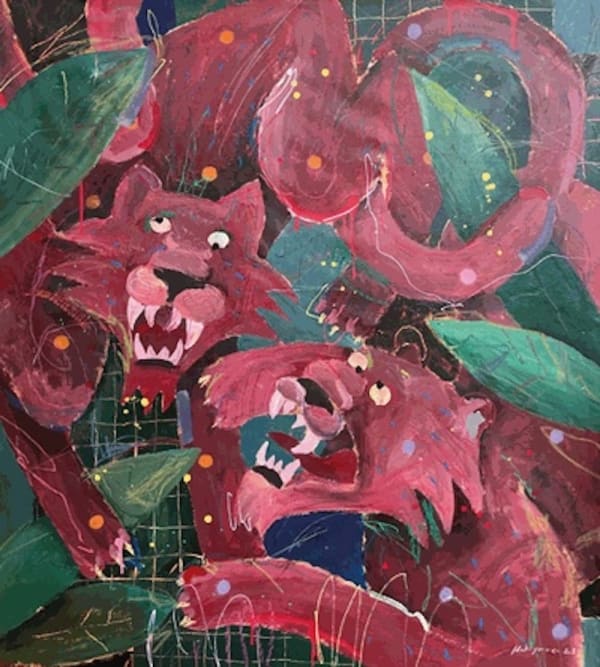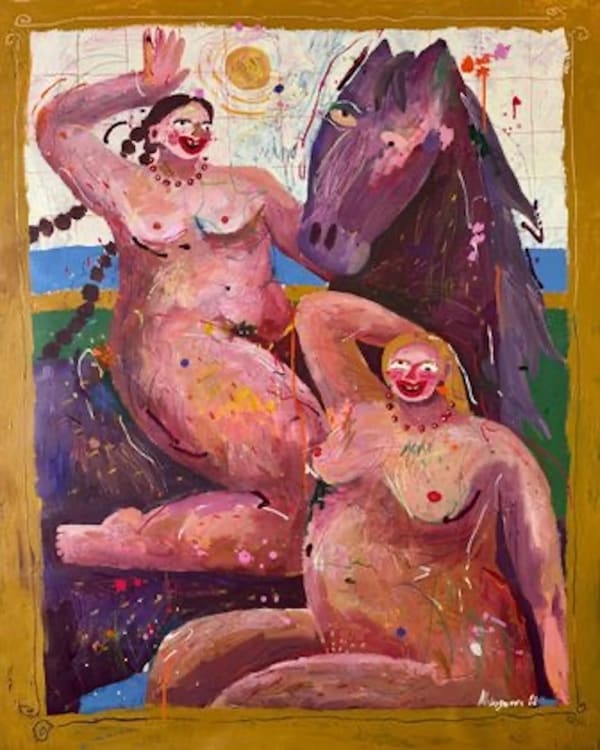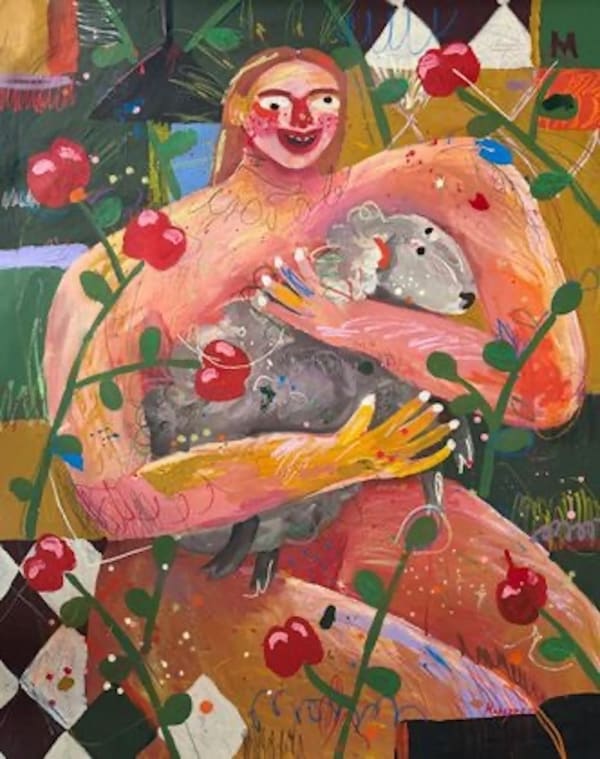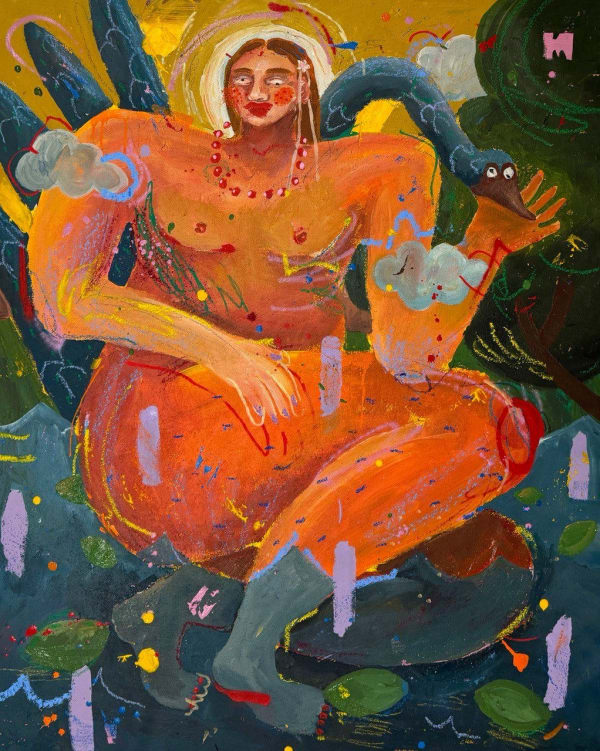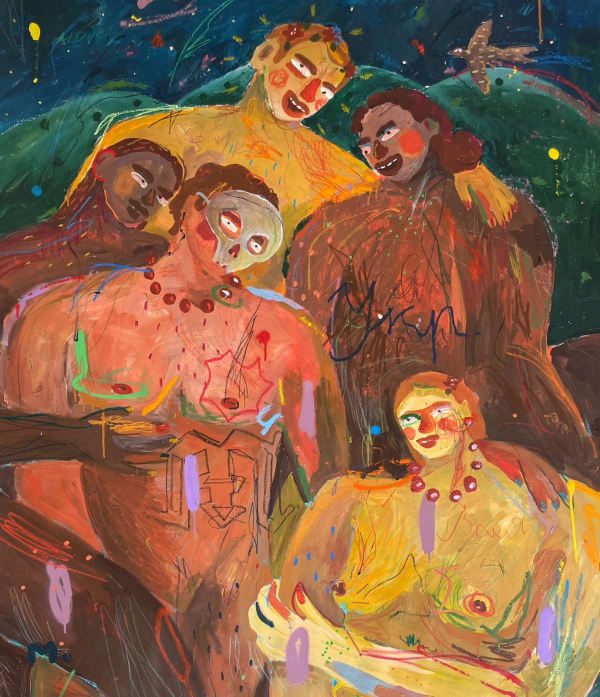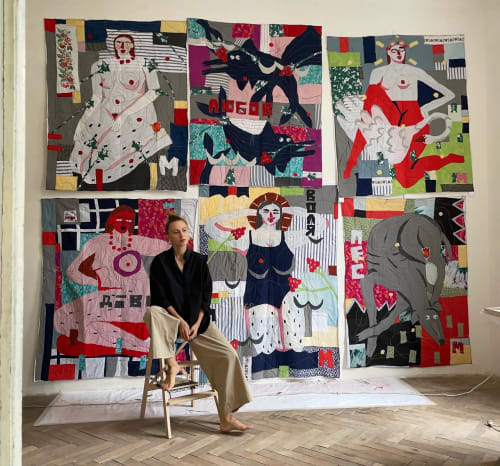Iryna Maksymova
Works
Biography
Iryna Maksymova (Ukraine) is a Ukrainian figurative artist who works primarily in painting and collaged textile. Maksymova's influences can be traced to the early 20th century Ukrainian avant-garde, and in particular Neo-Primitivism, as well as to whimsical and fantastical works of Ukrainian self-taught female artists such as Mariya Pryimachenko.
The artist also draws strong painting references from the Eastern European street art as can be seen in her bold marks, graffiti tags, use of spray paint, consistent inclusion of various types of text, from energetic scribbles to hand-drawn words in Gothic letters. Maksymova’s vocabulary builds on the visual and literary tradition of Ukrainian folklore and “naive” narratives of self-taught and folk painters. She developed a unique and instantly recognizable visual language and storylines around representation of strong women, very often nudes. Maksymova often speaks about both femininity and masculinity, vulnerability and power, fragility and triumph, expressed through the bodies and actions of women. The artist also sees these majestic nude women in her work as “symbolic of the strength and resilience of a nation.” Other beloved protagonists that appear on her canvases are animals, both pets such as dogs and and fantastical animals of folklore such as lions, tigers, snakes, dolphins, firebirds.
Maksymova represents these sentient intelligent creatures sometimes as protectors of the people and the land, sometimes as saints and warriors - equal to their human counterparts. Maksymova often reflect about the importance of ideas around equality, human rights, feminism and animal rights for her work. She sees her art as a platform for social and political activism.
Since 2020 Maksimova has exhibited widely in her native Ukraine, in Europe, Asia and North America, including exhibitions in London (2022), Berlin (2022), Madrid (2022), Beijing (2022), Taipei (2023), Los Angeles (2021), Golden Coast (2021), New York (2022) and Berlin (2021). Her work has been acquired by important private and institutional collection in Europe and North America.

